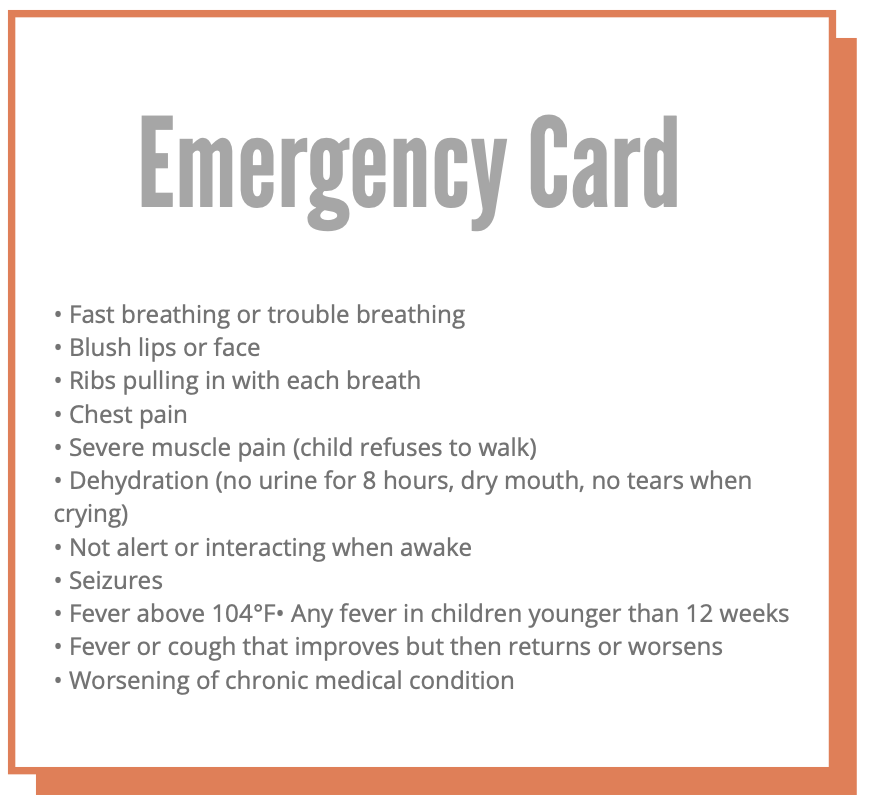The Importance of Early Treatment of Pediatric Flu
/This is a sponsored post
Whether we like it or not, peak flu season is here and these next months are going to be key in the prevention of flu and early treatment, especially in our kids. It’s hard to pay attention to pediatric flu and give it the importance it deserves when the main focus right now is still on Covid-19, however the purpose of this post is to help us not lose sight of the millions of children that contract influenza every year and how crucial early treatment is to avoid hospitalizations or even death.
Please fill out survey at the end of this post.
That’s why I partnered up with Med-IQ to publish a second post on this matter and dig deeper into antiviral treatments for kids.
Med-IQ is an accredited medical education company that provides an exceptional educational experience to doctors, nurses, and healthcare professionals.
In the first post I published in October I shared with all of you a conversation I had with three renowned doctors from hospitals around the country about the differences between influenza, Covid-19, and a common cold and how to assess its symptoms.
Here’s a link to that first post if you need a recap on flu symptoms or you can also go back to the Facebook live session (link) on that matter. However, today’s main focus will be on antiviral treatments and the importance of prompt medical care.
So, here are six things you need to know about how to treat pediatric influenza:
1.- Let’s be proactive, the best prevention is the vaccine.
The influenza vaccine is the number one preventative measure parents can take, and getting the flu shot early in the fall is the recommended guidance from the Centers for Disease Control (CDC). Children six months and older can get it and it’s still available in Houston.
2.- Early medical care is key.
According to the results of our last survey, 31% of participants hadn’t yet discussed with their doctor how to prevent seasonal flu in their household. Also, 61% of participants said they did not receive antiviral medication that would prevent them from catching the flu.
This may be because parents may not recognize the signs and symptoms of influenza, and therefore may not promptly seek medical care. So, if your child gets sick with symptoms such as fever, body aches, deep cough, and/or dehydration, getting your child to the pediatrician early can help prevent further complications like pneumonia or ear infections.
A delay in treatment increases the risk of serious influenza-related complications for the child or other high-risk household members and prevents the prompt initiation of antiviral treatments that are most effective when administered within 48 hours of symptom onset.
3.- Family treatment as a unit.
The doctors emphasize the importance of considering the entire family unit when considering an early intervention, especially if there are other high-risk family members.
Consider having the person in the house who’s been diagnosed with the flu to wear a mask and if siblings share a bedroom and one of them has been diagnosed with the flu, have one child sleep elsewhere. Regular handwashing is important!
4.- Antivirals are safe for infants, children, and adolescents.
Antiviral treatment is recommended as soon as possible for any patient with suspected or confirmed influenza who is hospitalized, has severe, complicated, or progressive illness; or is at higher risk of complications such as children under the age of five years old.
5.- Treatments available.
There are four FDA-approved antiviral drugs recommended by the CDC to treat the flu this season.
• Baloxavir marboxil – It requires taking just one pill for one day vs. Oseltamivir phosphate (also known as Tamiflu) which is a 5-day treatment. Reported side effects include nausea – It’s a good idea to ask your doctor for anti-nausea medication if this is prescribed.
• Oseltamivir phosphate
• Peramivir
• Zanamivir
Remember, antibiotics do not fight any virus including the flu or COVID.
6.- The benefits of antiviral therapy.
Early treatment decreases the duration of symptoms, also, data suggests that patients at high risk of influenza complications who receive antiviral medications can reduce:
• Duration of symptoms
• Risk of some complications (e.g.: bronchitis, otitis media, pneumonia)
• Hospitalization
• Mortality
So, in conclusion, the most important thing to remember is that if you have questions or concerns about your kids’ symptoms or general health, call your pediatrician right away! The doctor will give you a course of action and if diagnosed, you’ll be within the 48-hour window for the antiviral treatment to work. Also consider starting antivirals in high-risk household members.
Also, keep using your facemask, wash your hands regularly, and keep social distancing. These simple prevention methods also help reduce the risk of getting other viral diseases.
Thanks Med-IQ for this very useful information on how to take care of our kids during this flu season, I hope it helps you as much as it has helped me.
Here’s a useful Emergency Card with the warning signs you need to check to see if you need to take your kids to the hospital right away:
Pin this
Let’s continue helping Med-IQ get more information for research purposes to develop future educational initiatives.
Med-IQ is conducting an anonymous survey and would appreciate your input. The survey, which includes additional education on this topic, will take less than 15 minutes to complete. Survey responses are shared only in aggregate. Your responses to these survey questions will provide Med-IQ with important information about your experiences with pediatric influenza, which will help us develop future educational initiatives. Once you've completed the survey, you will have the option of providing your email address to be entered into a drawing administered by SOMA Strategies to win 1 of 10 $100 VISA gift cards. If you choose to enter, your email address will be used only to randomly draw the winners and notify them of their prize and to send a follow-up survey as part of this same initiative.
Medical faculty that led the discussion:
Paul G. Auwaerter, MD
Sherrilyn and Ken Fisher Professor of Medicine
Clinical Director, Division of Infectious Diseases
Johns Hopkins University School of Medicine
Baltimore, Maryland USA
John J. Russell, MD, FAAFP
Clinical Professor, Family and Community Medicine, Thomas Jefferson University Medical School Philadelphia, PA
Program Director, Family Medicine Residency Program, Abington Memorial Hospital
Abington, PA
Kathryn Birken-Friedman, MD
Doctor of Pediatric Medicine
Joe DiMaggio Children's Hospital
Hollywood, FL














































